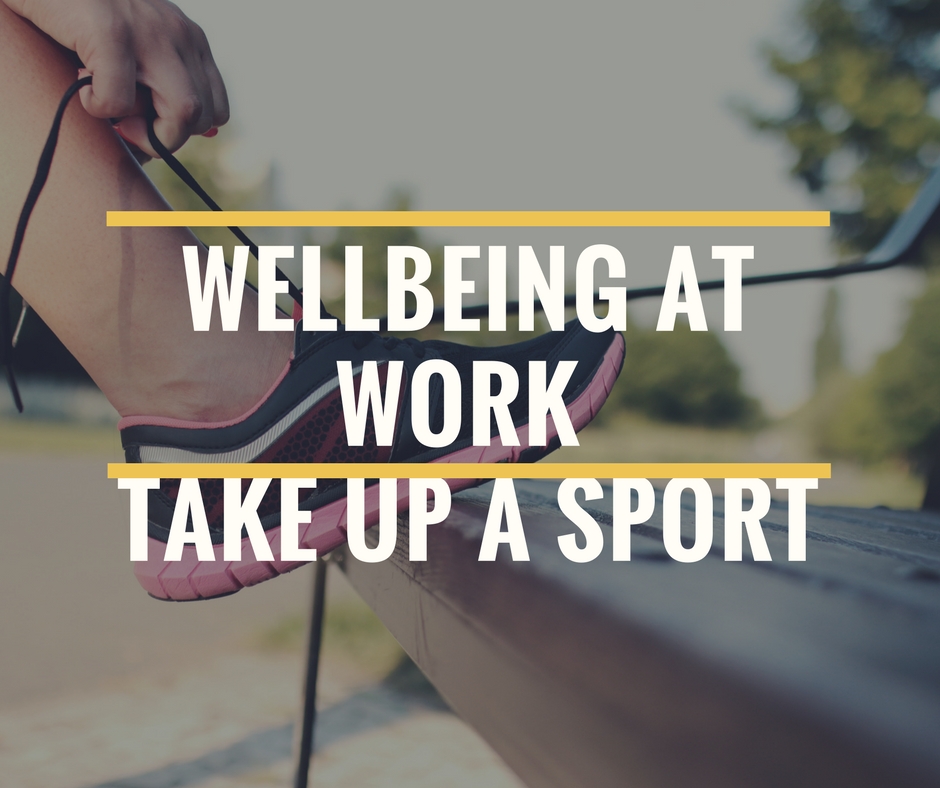Staying healthy by practising a sport is more than just a fad. Much more is at stake, as studies have shown that physical inactivity causes more deaths than smoking ! But exercise is not just beneficial for our health – it also has a positive impact on our productivity and our performance at work. To be at our physical and intellectual peak, we should be doing 30 minutes of moderate physical exercise every day. But how is this possible, when we spend all day in the office ? The solution : do some sport at work.
The sedentary lifestyle : a silent killer
Over the past 50 years, our working lifestyles have changed dramatically. The majority of workers nowadays stay sitting down for most of their working day, especially those who work in the service sector. But, this sedentary lifestyle is seriously affecting our health, with the World Health Organization having declared that physical inactivity is the fourth leading risk factor for global mortality.
Indeed, a lack of physical activity increases the risk of several health issues, including heart disease, diabetes, obesity, colon cancer and many other illnesses. Experts at the Washington Post have also studied this issue and talk of a “sitting disease”, explaining that this hazard does not spare any part of our body as “a chain of problems [arise] from head to toe”.
Not to mention the small ailments that affect us every day : chronic fatigue, aches, heavy legs, constipation… and even a foggy brain, because in the sitting position, our whole system slows down. Finally, it has been found that the longer we spend seated every day, the shorter our life expectancy. Yet between our workstations and meetings, we end up spending the majority of our time sitting down.
As a result of this new lifestyle, employees are taking more and more leave for health reasons. And when they continue to come to work out of fear of being judged or of falling behind with their work (or perhaps because they just love their job), they are only exacerbating their health conditions. This is known as presenteeism and, contrary to popular belief, it can be worse for a company than absenteeism.
What are the benefits of exercise ?
It has long been proven that doing sporting activity every day is beneficial for your health because it :
- improves your cardiovascular health,
- regulates your blood pressure,
- helps you breathe better,
- prevents joint problems,
- eliminates toxins,
- prevents the occurrence of other illnesses, and much more.
Sport also has positive effects on our mental health, as it produces a feeling of pleasure and helps us to de-stress. How ? By releasing calming hormones into our body, called endorphins. What’s more, some sports activities (especially endurance sports) boost oxygen circulation to the brain and so help improve our cognitive skills.
A growing awareness of the importance of exercise
Among employees…
Conscious that their working habits are detrimental to their health (and therefore their well-being), many employees try to do some physical or sporting activity once or twice a week.
According to a study carried out by Decathlon Pro in 2016, a large number of employees are diligently going running, playing badminton, or joining fitness classes in order to relax and unwind, but also to keep fit. And for those who only do sport occasionally or not at all, it’s generally not down to a lack of motivation, but rather because they don’t have anywhere to do it. For those who work in large cities such as London, Liverpool, Bristol or Birmingham, there are numerous sports centres around, so make the most of them during your lunch hour or at the end of the day !
…and among companies
More and more companies are aware that their employees’ performance is linked to their happiness, and so are setting up sports centres on site to meet this vital need to boost well-being. But, this still isn’t enough. In France, for example, only 13% of workers have the chance to exercise at their workplace. And it’s clear that it’s mostly large, multinational companies, like Google or Total, who grant this “privilege” to their senior managers.
Create your own small sports routine
Whether it’s walking, cycling, 2 or 3 sessions in the pool or gym each week, a Zumba class or a Lindy Hop – whatever your preference, it is essential that you choose one or two sports you enjoy, so that your desire to keep at it begins, grows, and lasts !
What if we offered exercise opportunities within our company ?
“When we start our working lives, our bodies stop working”, says Benoît Eycken, Cofounder of Alizeum, an agency specialising in sports and health events and communication, who organised the first national “Be Walk” challenge in France in May 2016. And this is absolutely true : once we join the world of work, we often find ourselves in a commute-work-sleep routine and no longer have time for exercise.
By encouraging sports in the workplace, company managers can show that they care about the well-being of their most precious assets : their employees :
- their physical condition improves, as employees will watch their weight and smoke and drink less ;
- their general health improves and they will get ill less often ;
- they become less susceptible to stress;
- they have more energy, so they can concentrate more and are more efficient ;
- they are more motivated and experience greater job satisfaction;
- they develop their leadership skills.
Moreover, there is a lot for the company to gain by allowing employees to exercise during working hours :
- the amount of sick leave taken decreases, as does the cost of medical treatment ;
- there are fewer workplace accidents ;
- the quality of work increases ;
- doing sport and exercise at work boosts team cohesion and improves workplace relationships ;
- and it also boosts employee commitment and loyalty.
In summary, sports can be a great managerial tool, and taking up exercise at work is a great productivity factor, given that it has a positive impact on the company’s overall performance as well as the corporate culture. And if you really can’t find the time to do sport, why not start by organising a stand-up meeting ?







 English
English  Français
Français  Nederlands
Nederlands
I got what you mean,saved to fav, very decent site.